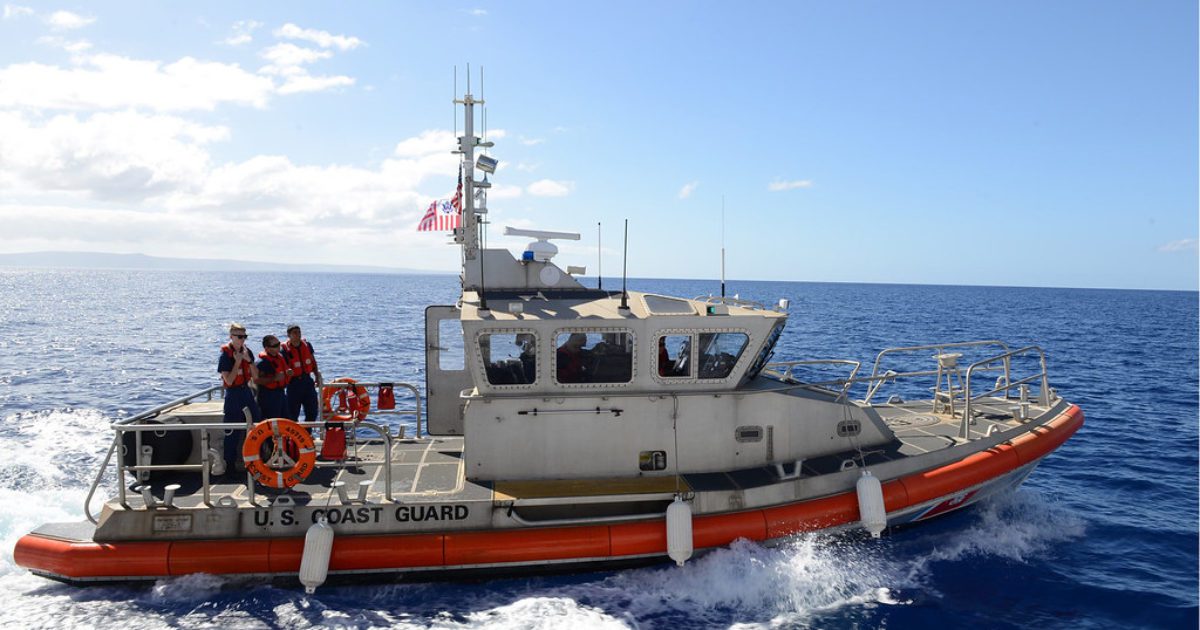“More than 130 U.S. Coast Guard members filed a class action lawsuit alleging the religious exemptions they filed in response to the Biden administration’s COVID-19 vaccine mandate for military service members were unlawfully denied,” The Defender reported.
More than 130 U.S. Coast Guard members filed a class action lawsuit alleging the religious exemptions they filed in response to the Biden administration’s C-19 vaccine mandate for military service members were unlawfully denied.#TheDefenderhttps://t.co/hOn4gsjmWe
— Children’s Health Defense (@ChildrensHD) August 3, 2022
Coast Guard to discharge COVID vaccine mandate objectors without separation hearings | Just The News https://t.co/FGzb59ja2S
— John Solomon (@jsolomonReports) July 31, 2022
The lawsuit, filed July 25 in the U.S. District Court for the Southern District of Texas — Galveston Division, also challenges the constitutionality of the mandate.
One of the attorneys representing the service members said the number of plaintiffs will likely exceed 200.
The Defender reported:
The suit names four defendants: Alejandro Mayorkas, secretary of the U.S. Department of Homeland Security (DHS); Linda L. Fagan, commandant of the Coast Guard; Lloyd Austin, secretary of the U.S. Department of Defense (DOD) and Dr. Janet Woodcock, acting commissioner of the U.S. Food and Drug Administration (FDA).
Plaintiffs are either active-duty or reserve members of the Coast Guard, and all “have sincerely held religious beliefs that prohibit them from receiving the COVID-19 vaccine.”
According to the complaint, under the August 24, 2021, DOD vaccine mandate, the military theoretically offers “medical, administrative, and Religious Accommodation Requests (RARs) to the mandate,” while the Coast Guard’s vaccine mandate, issued two days later, “incorporates the provisions of the DOD mandate.”
The suit alleges: “In practice, only servicemembers with medical or administrative reasons for an exemption from the mandate are accommodated, and even those sparingly, while RARs are universally denied unless the requester is eligible for administrative separation – i.e. imminently leaving the Service.”
This “conclusively demonstrates that the Armed Services have systematically and willfully violated service members’ free exercise rights under RFRA [Religious Freedom Restoration Act] and the First Amendment,” the lawsuit states.
“While federal courts have ordered the Navy and Air Force not to take any adverse actions against military members seeking religious exemptions to the COVID-19 vaccine mandate, the Coast Guard is seeking to discharge service members refusing the vaccine without allowing them to appear before administrative separation boards to defend their cases,” Just the News added.
“It is impossible to justify this continued mandate and this action based on the current studies and science,” said military defense lawyer R. Davis Younts.
From Just the News:
Federal courts in Texas and Ohio have granted injunctions against the Navy and Air Force vaccine mandates, respectively, for members seeking religious exemptions. Those injunctions, however, do not apply to any other military branches, including the Coast Guard.
While in the other branches an administrative separation board is a right to which members are entitled based on service time, the Coast Guard is seeking to deny that due process protection to otherwise qualified COVID vaccine mandate objectors.
An active-duty Coast Guard rescue swimmer nearing retirement told Just the News that despite an unblemished service record with many awards, he is facing involuntary separation next month after his request for a religious exemption from the vaccine mandate was denied.
Much like the Navy SEALs and other special forces, Coast Guard rescue swimmers are an elite cadre, selected through a highly competitive process and trained under grueling, demanding conditions. Going through rescue swimmer school can take about 10-13 months, and afterwards, members take another eight-week course to become an EMT. Supplemental training is required intermittently throughout their careers, like, for example, helicopter rescue school approximately every four years.



Join the conversation!
Please share your thoughts about this article below. We value your opinions, and would love to see you add to the discussion!